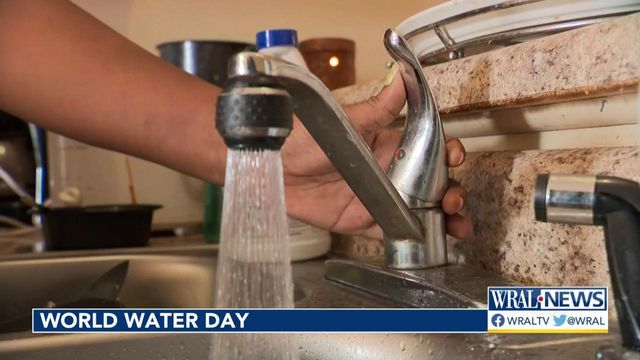Drinking water contamination and rising sea levels: North Carolina's future is riddled with challenges
Leaders at a water conference at NC State this week are addressing the swath of challenges that threaten the state -- including climate change, pollution, and drinking water contamination.
Posted — UpdatedAccording to the United Nations, more than a quarter of the global population doesn’t have access to clean drinking water.
Water safety is also an issue in North Carolina, a state that faces a growing number of water-related challenges, according to experts at the NC Water Resources Research Institute conference this week.
Several speakers focused on climate change and how the state is under prepared to grapple with rising sea levels and an expanding floodplain that is spreading further inland.
"We're looking at the blueprint as an opportunity to manage flooding and get buy in from folks that this [preparation] needs to happen," said Richard Rogers, director of the Division of Water Resources within the North Carolina Department of Environmental Quality.
The agency is tasked with ensuring water safety, but it's been underfunded and short-staffed for years, with job vacancies above 20% and climbing.
Rogers says DEQ is struggling to retain and recruit employees because it cannot offer competitive salaries.
"We can't even come close," Rogers said.
From drinking water to watersheds, North Carolina is dealing with industrial pollution and development runoff that’s pushing down water quality.
The entire southeast region also needs to address widespread contamination, according to Victor Engel with the South Atlantic Water Science Center.
“What we’ve seen is there’s a wastewater signal in just about everybody’s drinking water," Engel said.
Aging infrastructure is another area of concern and impacts of land use in rapidly-developing communities, including Raleigh.
"As we’re growing, our infrastructure also needs growing investment," said Jane Harrison, a Raleigh City Council member.
The Triangle's population is adding more than 1% each year and how that growth is managed could determine the health of local watersheds.
"The way the we can protect our water resources is to make sure that we have ample open space, that we protect our forests, and that Raleigh continues to be the city of oaks," Harrison said.
The water conference continues at NC State on March 23 from 8:30 a.m. to 4:15 p.m. at the McKimmon Center in Raleigh.
Related Topics
• Credits
Copyright 2024 by Capitol Broadcasting Company. All rights reserved. This material may not be published, broadcast, rewritten or redistributed.





